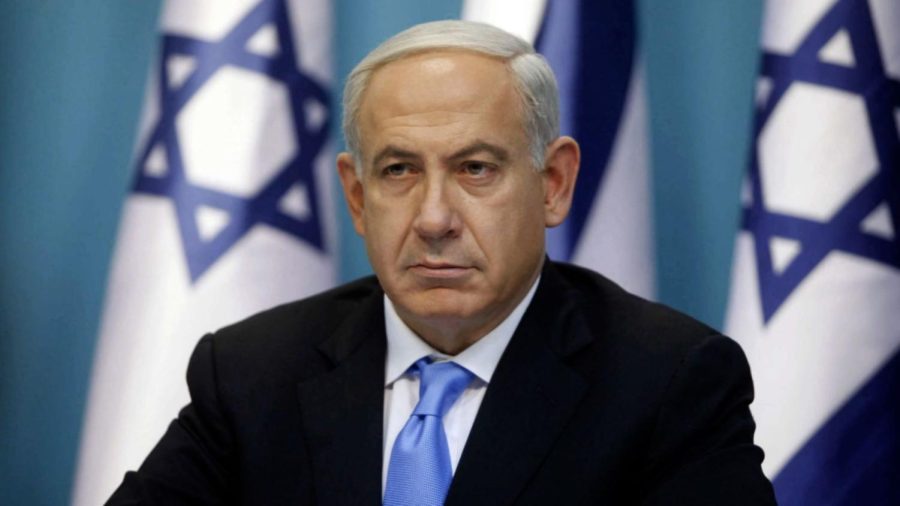Bibi Netanyahu: Crime Minister
If someone had told me only a few months ago that a Cheltenham High School graduate would be dismantling the Jewish state and eradicating Israeli democracy as we know it, I would have laughed in their face. Unfortunately, this is not a quip about Harriton’s supremacy among the ranks of Montgomery County high schools, but a devastating reality. The events to unfold in the coming days and weeks will be decisive not only for the future of Israel, but for the security of the Jewish people worldwide.
One might be wondering how Israel, historically lauded for its stability as a democracy in a region marked by authoritarianism, has devolved to this rock bottom. The answer lies in Benjamin “Bibi” Netanyahu, Israel’s current Prime Minister, who first ascended to the position in 1996 as the youngest to ever do so. Raised in Jerusalem and for a time in Cheltenham County outside of Philadelphia, Netanyahu graduated from American high school before returning to Israel to enlist in the Israel Defense Forces. Following the 1995 assassination of Yitzhak Rabin, Israel approached radicalism with trepidation, simply seeking security for the Jewish people. Yearning for sanctuary, Israelis ran right into the arms of Bibi Netanyahu, so enveloped in his embrace, his campaign promises to fight terrorism, that they were blind to the tricks he had up his sleeves.
Once in office, Netanyahu’s true colors began to seep through; his public image plummeted as headlines spun tales of his extramarital affairs, influence-peddling corruption charges, and destruction of Israeli-Jordanian relations. To no one’s surprise, he suffered a crushing defeat in the next election, and exactly like a toddler in the midst of a temper tantrum, Bibi haughtily announced his retirement from politics at the positively geriatric age of fifty.
Yet, as soon as the opportunity presented itself, via the failure of his former opponent’s government in late 2000, Netanyahu began to creep back into the political world. First serving as the Minister of Finance and then as the Leader of the Minority Party, Likud, in Israel’s Parliament, the Knesset, Netanyahu harped on growing fears about the security of the Jewish state to draw the public back into his suffocating embrace. Upon his re-election in 2009, he served as Prime Minister until 2021.
During this period, Netanyahu furthered Israeli-Palestinian tensions through a puerile unwillingness to cooperate on militarization and settlements and his conjoinment of his party with several extremist, overtly racist right-wing groups in order to overcome the electoral threshold for re-election. Simultaneously, he augmented his criminal record, investigated in two separate cases by Israeli police over incidents involving fraud, bribery and corruption.
After tumultuous oustings and ingressions into the foremost seat of office in response to his criminal trials and growing extremism, Netanyahu cemented his position at the very end of 2022, securing his majority in the Knesset through forming the most right-wing government the country has had to date. This coalition, composed of ultranationalists and the Israeli equivalent of the religious right, has crossed into uncharted territory as they seek to uproot democracy through what is essentially a judicial overhaul.
If enacted, the law, proposed by Netanyahu’s puppet, Justice Minister Yariv Levin, would “reduce the Supreme Court’s ability to revoke laws passed in Parliament,” as the New York Times explains. Further, Bibi would have the ability to seat his cronies on the judicial bench, and effectively overturn the process of checks and balances, distorting democracy into dictatorship. This mockery of the Court comes at an all too convenient time for the Crime Minister, whose unresolved corruption charges would now magically drift into the abyss.
This jostling of the judiciary will impact more than just the Israeli people, as Netanyahu’s power-hungry tactics and bigoted regime have already begun to lower the worldwide perception of Israel. U.S. Secretary of State Anthony Blinken hinted at his disapproval of the coalition’s plans, pointedly noting that the the U.S. and Israel strengthen their relations by “holding ourselves to the mutual standards we’ve established; and by speaking frankly and respectfully, as friends do, when we agree and when we do not.”
To be perfectly clear, without the support of the U.S., Israel would struggle to survive. Washington provides Israel with critical monetary support, as well as military aid packages of 170 billion dollars and the construction of the Iron Dome, which has averted 97% of rockets fired towards Israel since its implementation. But most importantly, as the international hegemon, the U.S.’s support of Israel may be the sole deterrent of their global condemnation. Indeed, anti-Bibi and anti-Israel sentiment have become a sort of litmus test among European intellectuals.
As protesters line the streets on both sides of the Atlantic, it becomes abundantly clear that this Cheltenham graduate holds the future of the nation, and of Jews worldwide, in his hands. To avoid an influx of antisemitic and anti-Israel sentiment, Israel must align with the U.S. and stay true to themselves through the retention of shared American and Israeli ideals such as democracy and freedom, a result which can never be achieved through Bibi’s oppressive regime.

Arielle is an IB Senior who is very excited for her fourth and final year with The Banner. Outside of The Banner, you can find her telling unfunny jokes...



